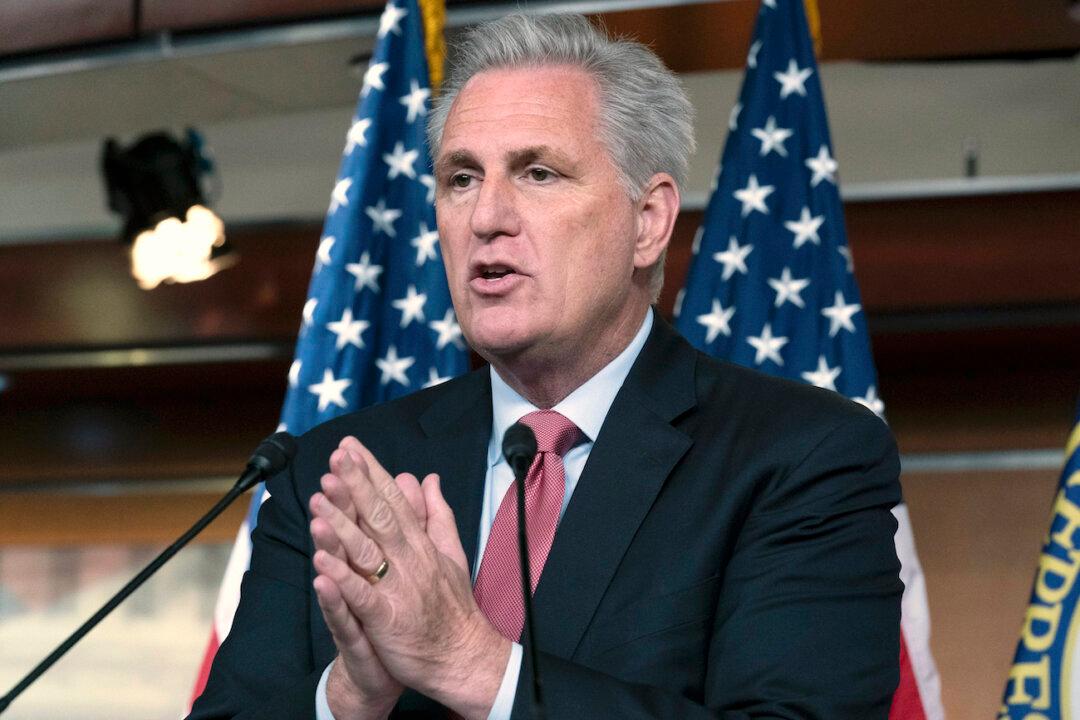House Minority Leader Kevin McCarthy (R-Calif.) is taking his fight against what he calls the “patently unconstitutional practice” of proxy voting in the U.S. House of Representatives to the Supreme Court.
In the early days of the pandemic in May 2020, the House approved a resolution allowing members to cast votes on the House floor by proxy, on the theory that it was advisable to limit attendance in Congress to combat the spread of the CCP (Chinese Communist Party) virus.





